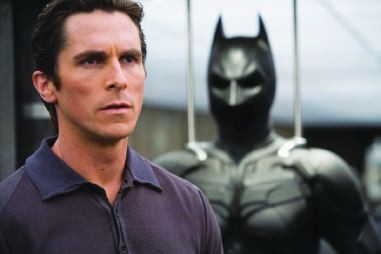The Dark Knight

As a boy, I was a slave to DC Comics. When the new issues of Superman, Batman, Action, Adventure and World’s Finest hit the stands, I was off to the drugstore to purchase and devour a fistful of 12-cent comics. It was a ritual that continued for many years, until I finally moved on to sports biographies. Little did I realize that years later, as a student, critic and teacher of film, I would be bombarded by movies based on my comic-book heroes.
Like other baby boomers with fond memories of their days consuming comic books, I didn’t embrace the film adaptations. They were too glib or too grim, too loud or too self-conscious. I longed for a screen version that might resurrect my long-buried bliss.
The Dark Knight, the latest in a long series of Batman movies—but only the second directed by Christopher Nolan (he did Batman Begins in 2005, as well as cult classic Memento in 2000)—comes closest to capturing the physical recklessness and mental one-upsmanship that delighted my youthful self. The thrill is not so much in the cinematic layout or the size of the fight scenes as in the complex and combustible relationship between Batman and his foes. This is not a fable-like tale of good versus evil but a man-versus-himself conflict in which Batman has to examine himself in the Bat-mirror.
As Batman fans know, Batman decided to become a crime fighter on the night that his parents were murdered in a back-alley stick-up (the details are covered in Batman Begins). The image of a bat on that fateful evening led the young Bruce Wayne to use his copious amounts of money to train himself physically, mentally, emotionally and spiritually to become the masked protector of Gotham City.
But Batman is always a bit of a loose cannon, a fly-by-night vigilante who listens to police lieutenant James Gordon (Gary Oldman) only when it suits him. Nolan and his co-writers highlight the similarity between Batman (Christian Bale) and his archenemies. The relationship is made abundantly clear via the remarkable performance by Heath Ledger as the Joker.
Ledger, who died in January at age 28, probably of an accidental drug overdose, gives the film a shot of adrenaline in every scene he’s in. And it’s not just his makeup that gets our attention. His Joker brings with him a cloud of chaos, confusion and fear. His ultimate goal is to bring out the very worst in people. He comes not to kill Batman but to keep tinkering with Batman’s fragile psyche. “Why would I want you dead?” he says at one point. “You’re so much fun!”
This Joker is a criminal for the 21st century: he doesn’t crave money or power; he just enjoys creating havoc and fear. Batman is the only one who can provide much opposition. When the Joker chuckles that he doesn’t know what he would do if Batman wasn’t around, we believe him.
The Dark Knight does have its problems, however. At two-and-a-half hours, it is at least 40 minutes too long. There are way too many subplots, including a convoluted one about a new district attorney named Harvey Dent (Aaron Eckhart), who is supposed to represent the sort of “good” justice that Batman challenges. It’s an ambitious idea, but it never really works. And why put the fine actress Maggie Gyllenhaal in the role of Rachel Dawes, Bruce Wayne’s former love, if you are not going to give her anything to do but look worried and stare off into space?
The visuals are spectacular, the special effects are indeed special, the music is stirring, and Michael Caine is still around as Alfred the butler, spouting pithy one-liners. But the main reason to see this latest Bat-stravaganza is Ledger’s Joker, who shows with frightening clarity how one person’s tragedy can be another person’s punchline.





